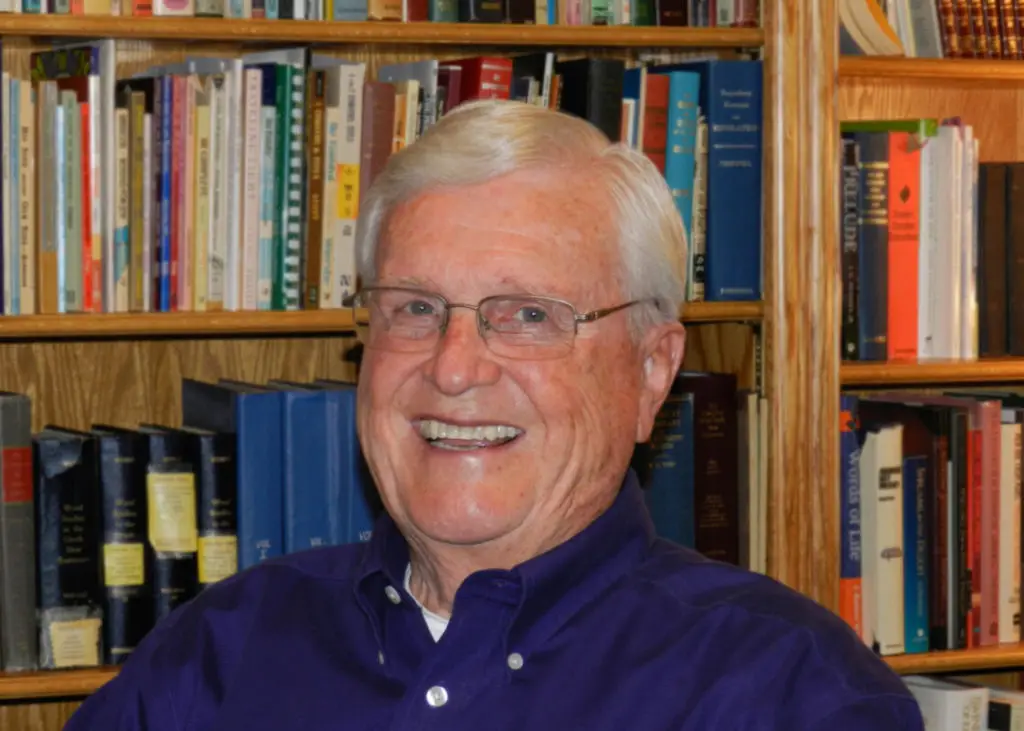Don Moore, retired executive director of the Arkansas Baptist State Convention, continues to encourage Arkansas Baptists to pray.
Coming out of the Olympic season we have become accustomed to new goals and new records. The superlatives fly around like mallards on a duck blind, “THE GREATEST OF ALL TIME!” These compliments fill the airwaves as commentators try to communicate the significance of what has just happened. A quick switch in our train of thought and we might wonder, who is the G O A T Pray-er? Aside from Jesus, it is safe to say there are no master pray-ers or premier pray-ers or model pray-ers. There are many wonderful examples, but they would likely be the first to deny their expertise. It seems any gains we make in prayer simply reveal how deficient and how far we have to go in prayer. Maybe that is why Jesus said, “Men ought always to pray and not give up.” Luke 18:1
Sin, the flesh, the world, our schedules, our independence, pride, and our enemy all militate against prayer. It is pretty obvious that any progress we make will be an uphill battle. It is not hard to engage the mechanics and methodologies commonly recommended for regular pray-ers, BUT MOTIVATION IS FUNDAMENTAL. Jesus talked a lot about wrong motivations, such as to be seen of men or to accommodate religious rituals. Isaiah decried such formalities to just try to get God on our side. (Isaiah 58)
As a Father, He loves for his kids to spend time with him. Appreciation yearns to be expressed and this we can do through prayer. He loves for us to be mediators through our “praying for one another that you may be healed.” (James 5:16a) His strategy for making and maturing disciples was that they might be with Him. The most natural way to be “with Him,” is prayer.
One brief account of Jesus’ prayer life probes our conscience with a very searching question. Luke 6:12–13 (ESV) “In these days he went out to the mountain to pray, and all night he continued in prayer to God. 13 And when day came, he called his disciples and chose from them twelve, whom he named apostles:”
What was at stake with Jesus’ choice of the Apostles? Everything! His fulfilment of His Father’s will hinged on His helpers. The question is, “how many things have we undertaken without prayer?” What is at stake in the decisions we are called on to make? Self-reliance strikes a blow to our weak intentions to pray. Comfort, wisdom, strength, guidance, growth, deliverance, and victory are all organically related to prayer. Why would not our hunger for these prompt us to pray faithfully and fervently?
Whether we pray or not and whether we persist, as Jesus urged, depends upon our motivation. A most unlikely subject could serve as encouragement to us. 2 Chronicles 33:12–13 (ESV) “And when he was in distress, he entreated the favor of the Lord his God and humbled himself greatly before the God of his fathers. He prayed to him, and God was moved by his entreaty and heard his plea and brought him again to Jerusalem into his kingdom. Then Manasseh knew that the Lord was God.“
The worst of the worst was Manasseh. Everything a man could do to defame and desecrate God, His temple, or His ordinances, he did. He even built pagan altars in the temple. He “burned his son as an offering,” (II Chron. 33:6) Fortune tellers, omens, sorcery, and spiritualist mediums all had taken the place of the Living God, whom he had seen at work in his father’s (Hezekiah)life and ministry. Yet he prayed! Scripture states, “When he was in distress, he humbled himself greatly.” That was the trigger to his praying. “God was moved and heard his plea” the next sentence states. (II Chron. 33:12-13)
Like Manasseh, most of us can get really serious about praying when we are in distress. It took Manasseh’s capture, being carried away with hooks in his body and chains on his wrists and imprisonment in Babylon for him to be in distress. We may never face such a predicament, but, if we are consistently aware of the spiritual darkness and destitution around us, we will realize that we are in distress all the time. Our churches, our families, our schools, our government, our media, and our moral chaos should cause us to feel the distress and urge us to “pray without ceasing.” Realizing our human limitations to affect any significant change in any or all these areas should motivate us to “entreat the favor of the Lord” as Manasseh did. If God would hear Manasseh, we should be encouraged to believe He will hear us, if we “humble ourselves greatly” as Manasseh did.

